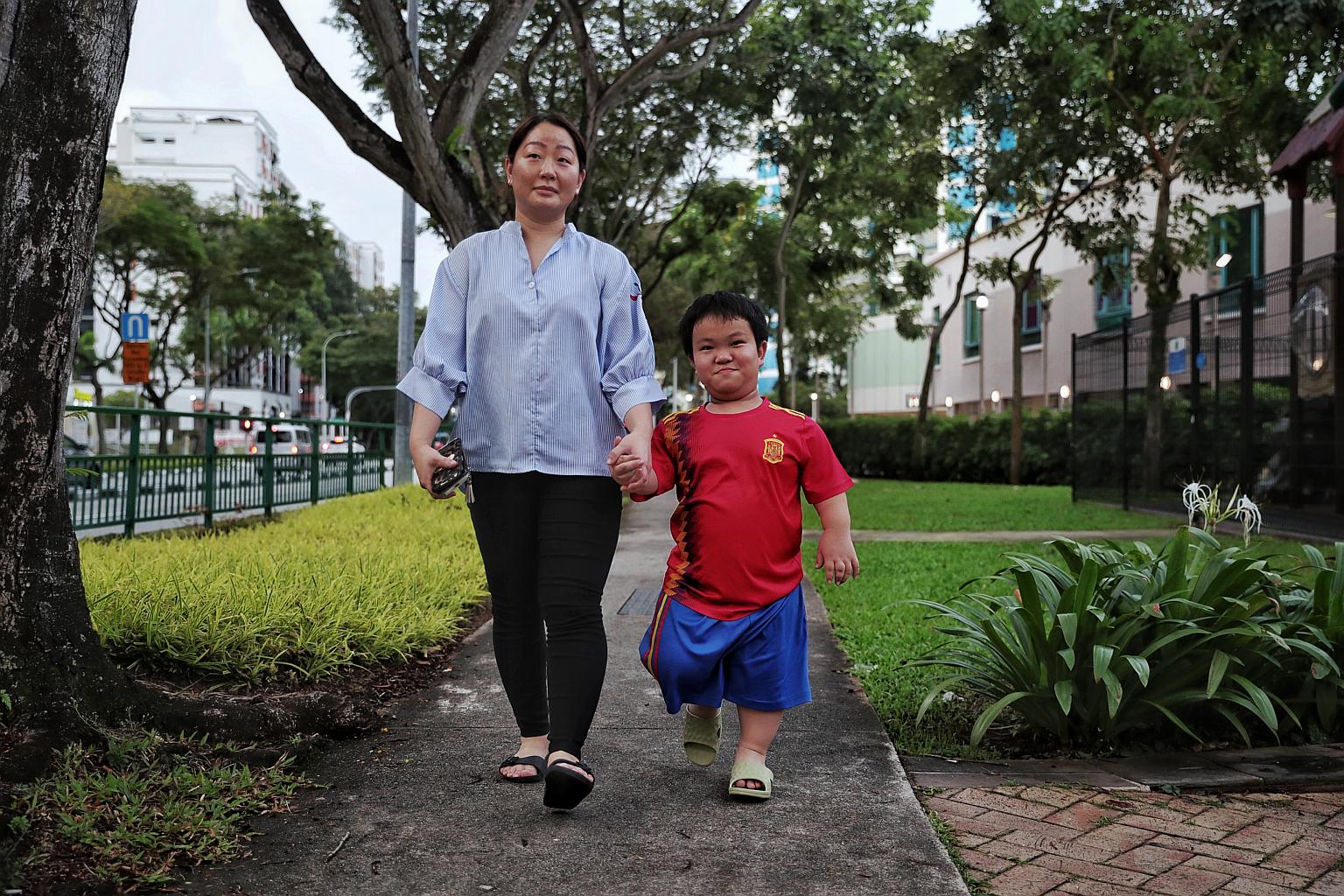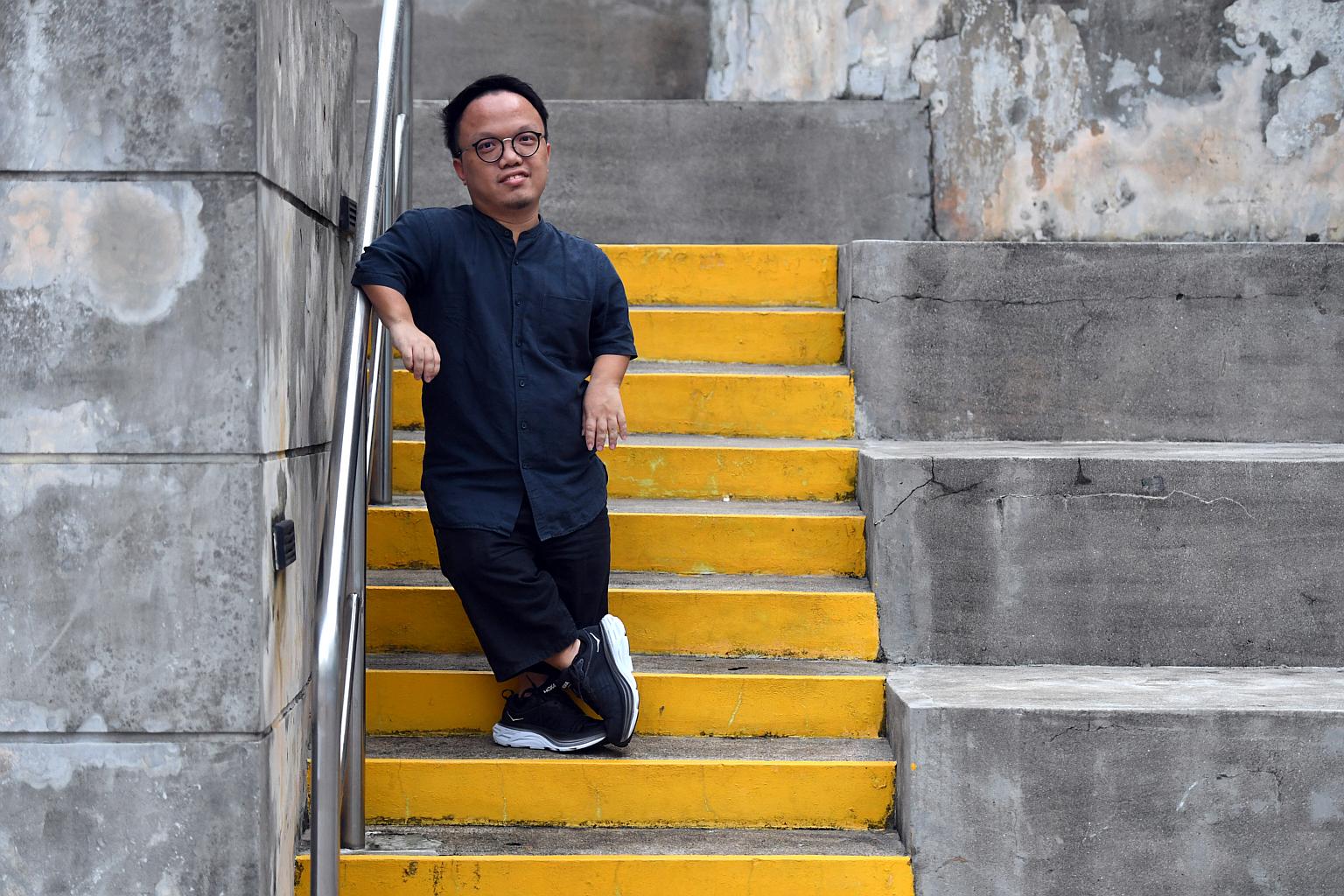Support group on dwarfism hopes to make big difference
Sign up now: Get ST's newsletters delivered to your inbox

Ms Jasmine Tang with her 10-year-old son Jayson, who has achondroplasia, a genetic disorder whose primary characteristic is dwarfism.
ST PHOTO: KEVIN LIM
Follow topic:
SINGAPORE - Ms Jasmine Tang knew nothing of achondroplasia - a genetic disorder whose primary characteristic is dwarfism - when her son Jayson was diagnosed with the condition after his birth in 2011.
"I was clueless, nobody guided me," said the quality assurance executive, who is now 41.
Ms Tang was able to get advice from an online forum based in the United States, though she noted that some of the information shared was not applicable in the local context.
Now she and other parents of children with achondroplasia can turn to Little Mighty Warriors, a local support group for those with the condition.
Little Mighty Warriors founder Joshua Khoo - who has had achondroplasia since birth - said the idea for the group came when he was on sabbatical last year.
"I realised that parents are seeking a support group to get advice," said the 30-year-old photographer. He said such advice can range from where to buy suitable shoes for their children to whether special fixtures are needed around the home.
The group now counts among its members 11 children below the age of 12, as well as eight teenagers and young adults.
Achondroplasia, a genetic condition that causes abnormal bone and cartilage growth, affects one in every 30,000 newborns globally, said Dr Koh Ai Ling, a consultant at the genetics service in the paediatrics department at KK Women's and Children's Hospital (KKH).
Among those with the condition is American actor Peter Dinklage, best known for the role of Tyrion Lannister in the TV series Game Of Thrones.
A major health concern for babies with achondroplasia is the narrow passage between the base of the skull and the top of the spine which can potentially lead to compression of the brainstem, spinal nerves and major blood vessels.
"This may cause abnormal breathing, and some patients may even stop breathing unexpectedly leading to sudden death. Some of the patients may have fluid build-up in the brain, requiring surgical drainage to relieve brain pressure," said Dr Koh.
Beyond health issues, those with the condition also face difficulties in getting insured and often face problems such as bullying, said Mr Khoo.

A couple in Singapore recently made headlines for their appeal to raise $1.5 million for their baby boy to get Voxzogo - the commercial name for vosoritide, a drug that can help those with achondroplasia to increase their height, which can alleviate some of the medical issues associated with the condition.
A year's supply of the drug, which has to be injected daily until the child turns 18, can cost up to $420,000 a year.
Voxzogo is not currently available in Singapore and is not on the list of medications approved for subsidies.
The Straits Times has contacted the Ministry of Health for comment.
On its social media accounts, Little Mighty Warriors said that while it was glad to see public support for the family, such individual fund raising is not sustainable in the long run and does not benefit the achondroplasia community as a whole.
"We have appealed to the Government for support for families interested in the breakthrough drug Voxzogo and are awaiting the outcome," the group said.
The drug has been approved in countries such as the United States, Brazil and Japan.
KKH's Dr Koh said clinical trials of the drug have shown an average increase in height of 1.57cm a year, though potential side effects include joint pain and decreased blood pressure.
She added that while data is limited on its impact beyond increasing height, experts have said starting treatment earlier with the drug could help in reducing the possibility of health issues such as spinal nerve compression and obstructive sleep apnoea.
"However, further studies are needed to ascertain these benefits," Dr Koh said.
Little Mighty Warriors eventually hopes to be formally registered as a group, to better support those with achondroplasia.
For now, Mr Khoo says he is focused on educating others.
While growing up, he was saddened by questions about his condition but now welcomes them, he said.
"I think everybody is born different... That's how I approach the situation."
"I think everybody is born different... That's how I approach the situation."

